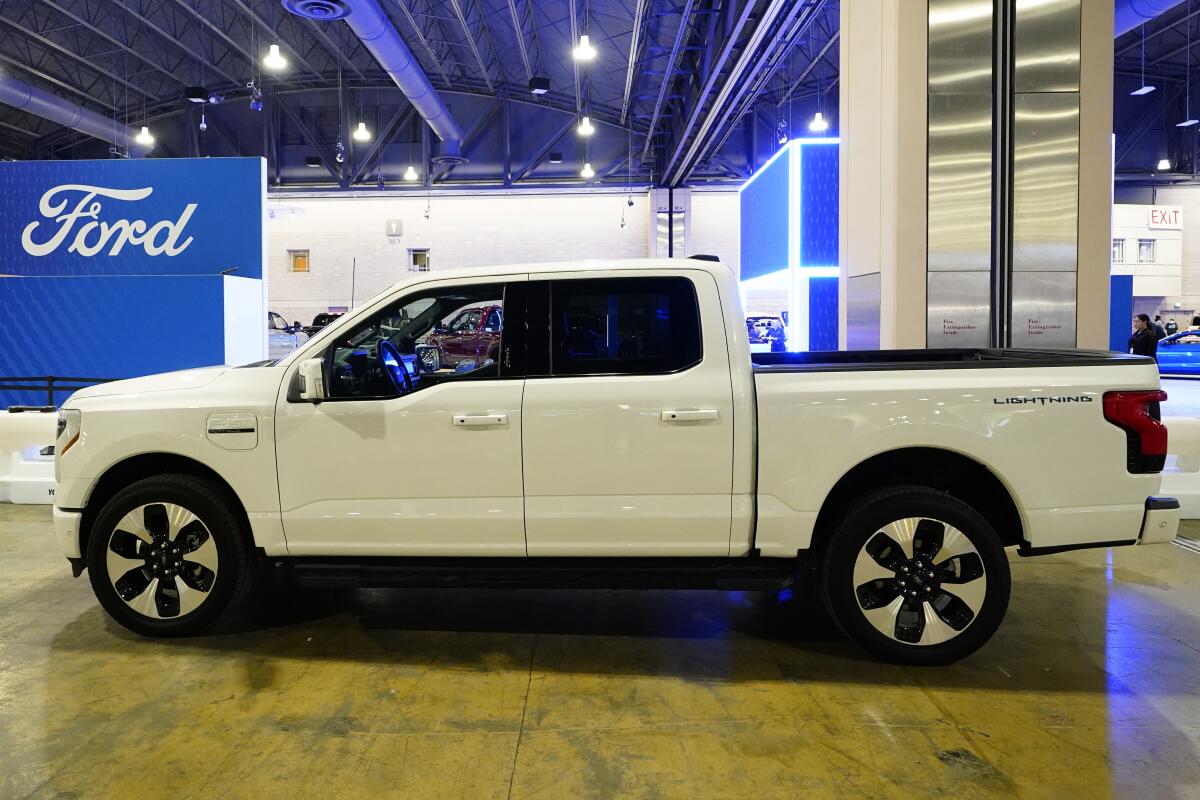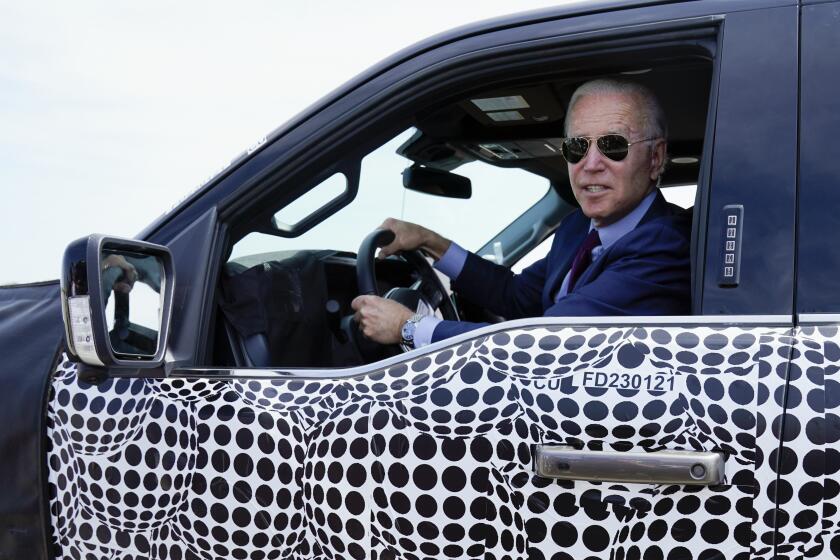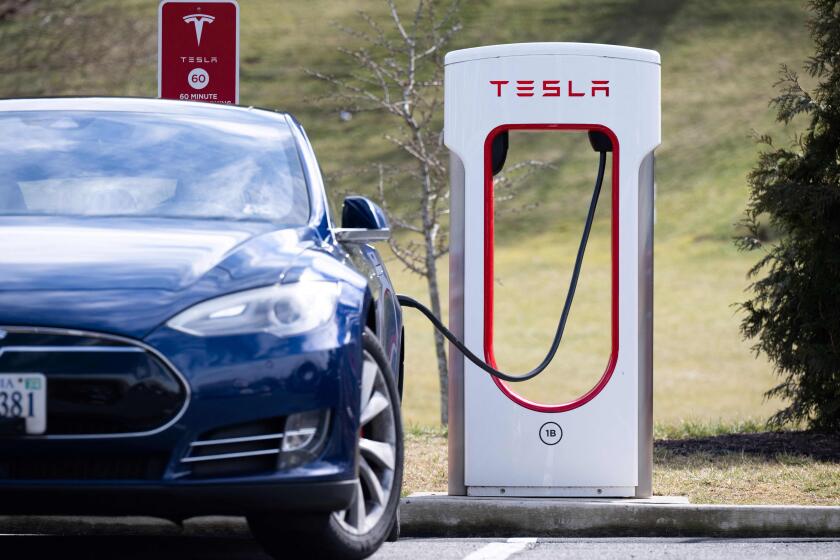Electric car models eligible for $7,500 tax credit cut to 13

- Share via
The number of electric vehicle models eligible for a consumer tax credit of as much as $7,500 fell sharply as new rules from the Biden administration kicked in on Jan. 1.
Narrower criteria reduced the number of qualifying models to 13 from about two dozen, according to federal data from fueleconomy.gov. The new rules exclude from the tax credit vehicles that use battery components made by Chinese manufacturers.
Treasury Department spokeswoman Ashley Schapitl said that the government has been closely coordinating with companies on the new restrictions, but that some companies had yet to submit data, which could lead to additions to the list.
“Automakers are adjusting their supply chains to ensure buyers continue to be eligible for the new clean vehicle credit, partnering with allies and bringing jobs and investment back to the United States,” she said.
Treasury Department rules unveiled last month target battery components made by any company that is subject to Chinese jurisdiction, or is at least 25% owned by the Chinese government. In 2025, the restrictions will expand to include suppliers of key raw materials for batteries, such as nickel and lithium.
It’s terrible for consumers as well and undermines the message that everyone should dump their gas guzzlers soon. President Biden should figure out how to expand incentives for more electric vehicles.
Depending on factors such as battery component and part manufacturing location, vehicles can either qualify for a $7,500 or $3,750 tax credit.
Among the vehicles still eligible for the full or partial consumer credit are the Model Y by Tesla, Rivian Automotive’s R1T pickup truck, Stellantis’ Jeep Wrangler 4xe and Ford’s F-150 Lightning pickup truck.
Models that lost access to the credit included Tesla’s Cybertruck and some versions of its Model 3, Nissan’s Leaf, Ford’s E-Transit van, and General Motors’ electric Blazer and Silverado.
The new requirements were included in President Biden’s signature climate law at the behest of Sen. Joe Manchin III, the West Virginia Democrat who provided the pivotal vote on the Inflation Reduction Act. Manchin had voiced concern that U.S. taxpayers were subsidizing batteries made in China.
Now that electric cars are mainstream, higher-income Californians will no longer qualify for state subsidies. Lower-income buyers could get up to $12,000.
More to Read
Inside the business of entertainment
The Wide Shot brings you news, analysis and insights on everything from streaming wars to production — and what it all means for the future.
You may occasionally receive promotional content from the Los Angeles Times.












